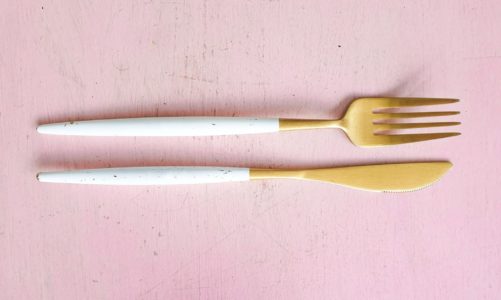While much has been written about collagen, many people still wonder what all the fuss is about. Touted as a new youth elixir, the collagen supplement market has grown exponentially. There seems to be a new brand on the shelves every few weeks, promising a miracle. This article is for those new to collagen and wondering if collagen supplements are natural? We have a look at collagen, how to obtain it from natural sources, and how to choose the best natural collagen product possible.
Table of Contents
What is collagen?
Collagen is one of the most abundant proteins in the body. It is made up of many different amino acids that our bodies need to function well. Think of it as a glue-like substance that helps support and strengthen connective tissues. These amino acids are used to build skin, muscles, ligaments, tendons, intestinal lining, blood vessels, bones, and more. In short, it keeps us looking and feeling good and more youthful.
As we age, the natural production of collagen wanes. This is most notable when joints become stiff or when lines and wrinkles start to form on the face. Environmental pollution, smoking, UV radiation, and other physical stressors also deplete collagen reserves. This may lead to health issues such as aching muscles, thinning hair, cellulite, blood-flow issues, lupus, rheumatoid arthritis, leaky gut, and loss of mobility.
Fortunately adding collagen to your diet may help if you suspect a deficiency. You can do this by taking collagen in powder, liquid, or pill form. Of these, the powder form is the most popular. Are collagen supplements natural though?
So, are collagen supplements natural?
Collagen can be synthetically created today in labs and may be useful for future medical use. It is still too early to tell whether it can replace animal-derived collagen at this stage.
For now, collagen supplements are natural and animal-derived, but the future of dietary collagen may look a lot different. Geltor, a California-based startup that creates nature-identical collagen. According to Futurism, Geltor already sells to cosmetic and skincare companies. If its products get FDA approval, its synthetically derived collagen supplements might soon be sold alongside natural ones.
As far as naturally derived animal collagen goes, there are many different types. Type 1, mainly sourced from bovine bones or hides, is the most common. Every type of collagen has a different amino acid profile, which all perform different jobs within the body. Which type of collagen you would choose would depend mainly on your motivation for collagen supplementation. Skin concerns and anti-aging issues are usually addressed by taking collagen from marine sources, such as fish scales and skin. If your concerns are mostly around immunity you may want to chicken collagen instead.
Most collagen supplements are sold as a peptide or hydrolyzed collagen (the same thing). These peptide forms are essentially shorter broken-down sections of a longer amino acid chain. They are more bioavailable and dissolve more easily in hot and cold drinks.
Choose the right collagen supplement
If you have good reason to supplement with collagen, then make sure it is a high-quality grade product. Here are a few factors to consider when choosing a collagen supplement that is as natural as possible:
- Choose a collagen supplement that contains little else, except for the collagen isolate itself, in a peptide or hydrolyzed form. Collagen powder is perfectly tasteless and does not need any artificial sweeteners.
- Choose a type of animal-derived collagen that is best for your own personal health requirements. If it is bovine-sourced make sure that the animals are grass-fed. According to the Organic Consumer’s Association, even the hides from these animals are contaminated.
- If It is marine collagen, look out for products sourced from sustainable fisheries and preferable wild-caught fish.
- Opt for the unflavored versions of collagen supplements. The more natural, the better. Collagen is so convenient and versatile because it is tasteless and dissolves instantly into any hot or cold drink.
- Look out for products that are third-party tested for peace of mind, since collagen supplements are not regulated.
- Many collagen supplements contain questionable amounts of heavy metals such as lead, cadmium, and mercury. The Organic Consumer’s Association tested many of the top-selling collagen supplements on Amazon, but found concerning levels of heavy metals contained in them. You can find the 2020 Heavy Metals In Collagen Study Test Result Details listing the collagen supplement here.
In the same study, 3 top collagen products scored the lowest levels of heavy metals. These are Bio Optimal Collagen Powder (Unflavored), Neocell Super Collagen, and Puori CP1 Pure Collagen Peptides. A special mention went to Organixx Organic Bone Broth Protein (plain) as a top product and is certified organic.
Last thoughts on natural collagen supplements
Whilst collagen supplements are natural it does not mean that consuming them is necessarily more beneficial for good health. It is always better to get your collagen from natural food sources such as animals, plants, and seafood sources. Traditional organic chicken and bone broths are a good source of collagen and rich in amino acids.
When taking collagen supplements it is important to remember that vitamin C plays a vital role in the formation of natural collagen. Being deficient in this nutrient, whilst supplementing with collagen may cause imbalances. People who are taking heart medication or any medication should speak to a health practitioner before taking any collagen supplements. Dietary supplements should not replace a healthy balanced diet.
Taking dietary supplements should always be done alongside the guidance of a medical practitioner. This article was not written or overseen by a medical professional and should not be viewed as advice or diagnostic information.
Others enjoyed these too:
What is Quali-C vitamin C and which brands to choose?
When is the best time to take vitamin C and collagen?
Does vitamin C help restore collagen?
Does vitamin C serum stimulate collagen production?
Which collagen supplement type should you take?
Disclaimer and Cautionary note: Not any of these statements have been evaluated by the Food and Drug Administration. The content of the articles and the products recommended are not intended to diagnose, treat, cure, or prevent any disease or health issue. The intention is also not to imply that vitamins or any dietary supplements are substitutes for a balanced diet or are in any way more beneficial or superior to dietary nutrients. It is also not intended to imply that general or normal health may be affected by not taking dietary supplements or receiving intravenous vitamin C infusions.
Image credit: Fleur Kaan via Unsplash




